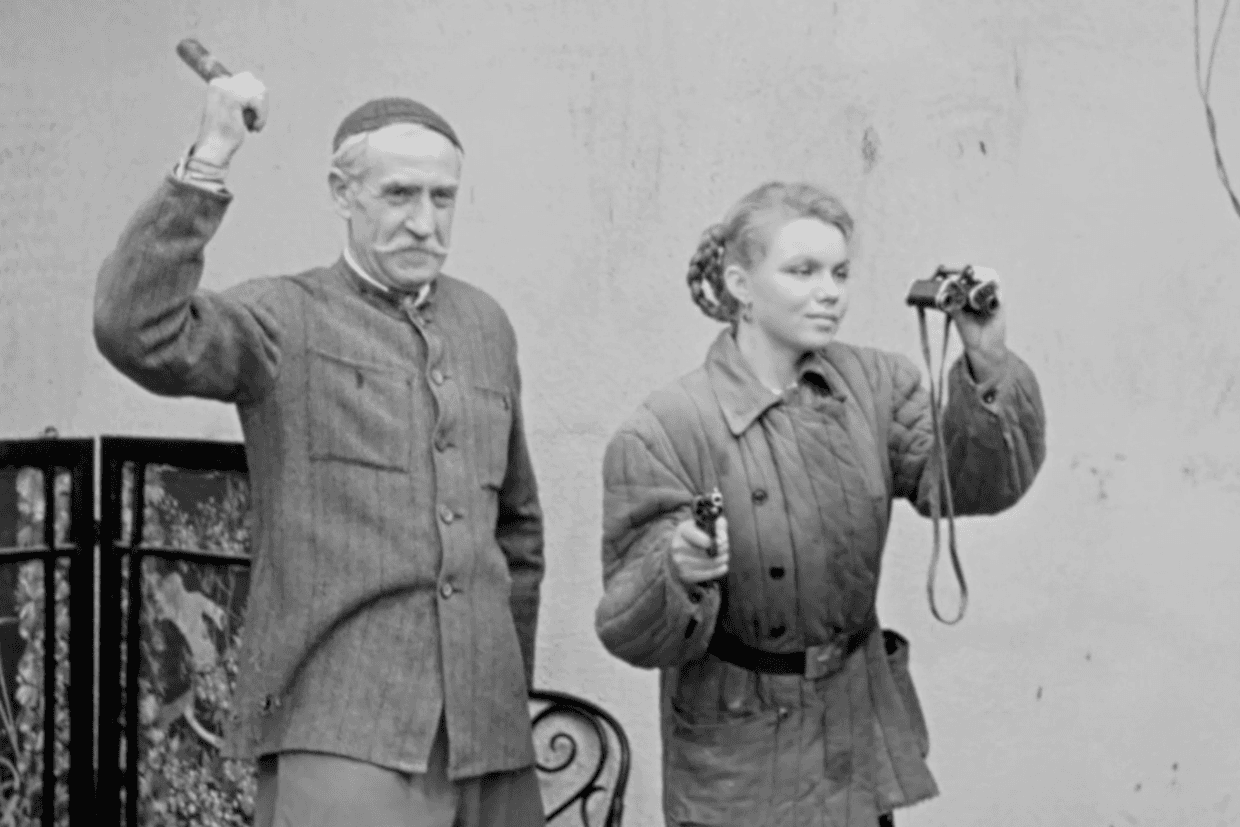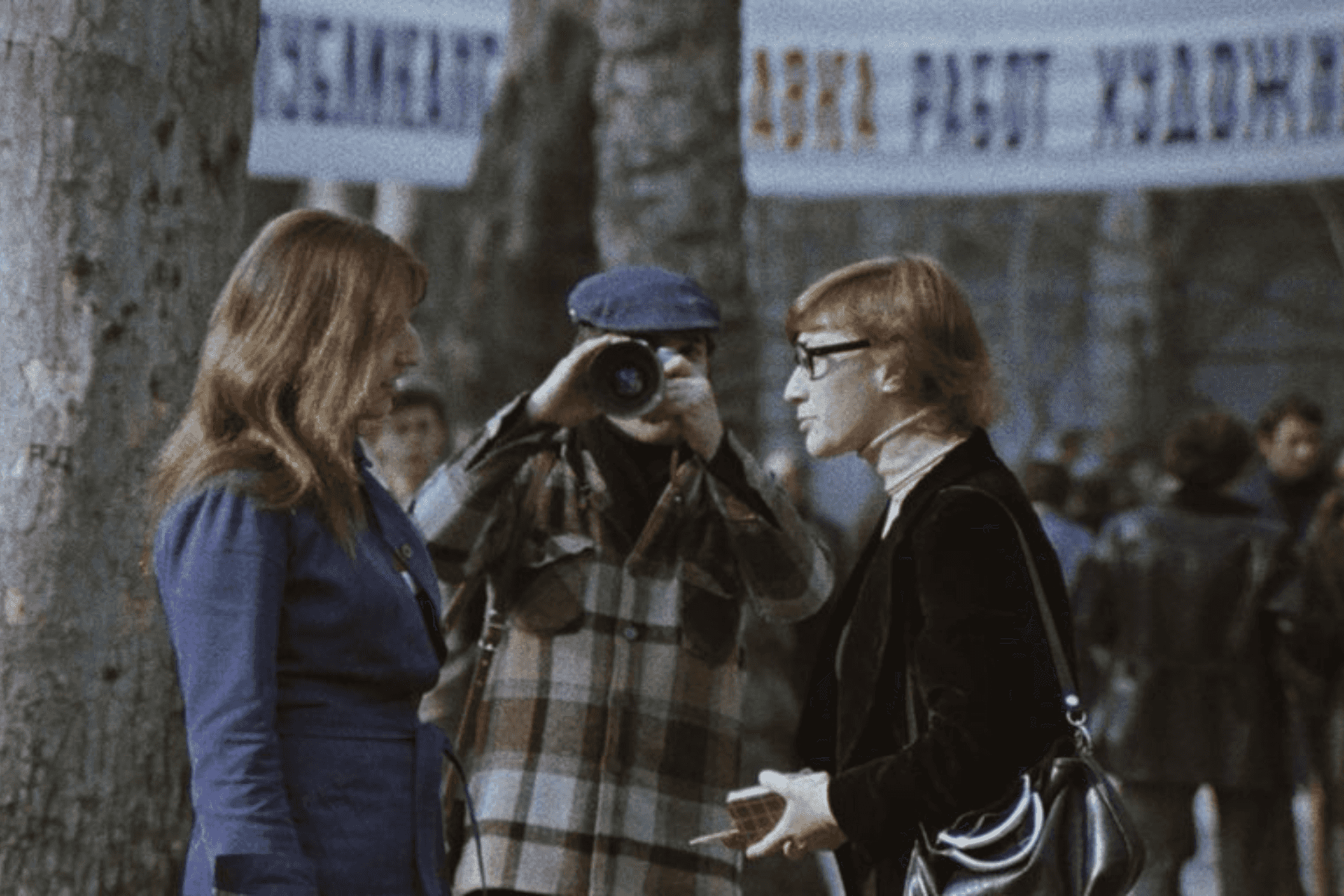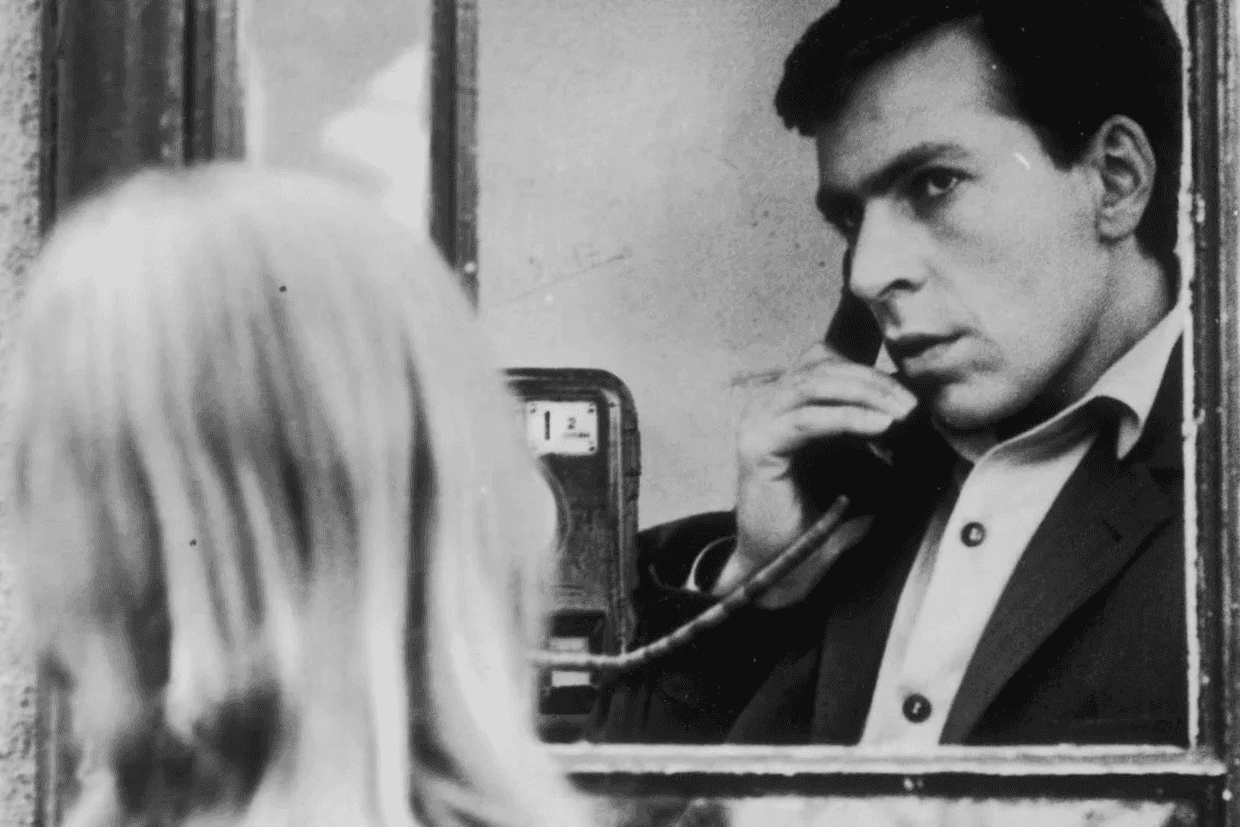★★★★☆
Eldar Shengelaia’s 1968 film is a layered parable on artistic individualism in the collectivist Soviet Union.
An Unusual Exhibition (1968) follows the sculptor Aguli (Guram Lortkipanidze) as he returns from World War II, full of ideas on how to best make use of a massive marble stone given to him by his mentor all the way from Greece. Soon, however, the necessity to make money, driven largely by his relationship with Russian police officer Glafira, or Glasha, (Valentina Telichkina), who becomes pregnant, leaving him to focus on creating sculptures for gravestones instead.
Notably, in this line of work, there is little room for creativity — the aim is simply to reproduce the figure in question. Any ideas Aguli has on his own, such as adding a third eye or sculpting the figure nude, is immediately rejected. From an up and rising sculptor, Aguli becomes simply an artisan — indeed, his new line of work so overtakes his life that with no exhibitions, the rest of his colleagues believe he has died in the war.
This realisation sends Aguli spiralling. He abandons his family — now consisting of wife Glasha, five children, and father Pipinia (Vasili Chkhaidze) — to stay with his actor friend and reconnect with a past childhood love. When this also does not work out, Aguli returns to the family — no mention of what occurred during the separation is ever discussed, a strange gap in the narrative. Indeed, when wife and former lover appear at a school reunion together, nothing is mentioned, something that in a different film would have been a clear source of drama.
In the film’s conclusion, Aguli realises that though he has not managed to create true art as he once wished to, he does indeed have his own exhibition, as the many sculptures in the local graveyard can attest. The famed marble stone that has sat for years in his courtyard is finally given away to his apprentice, whom he hopes can actually make good use of it. It is an acceptance of his life with his family and the choices that have brought him here.
While overall a romantic drama, there is also much comedy throughout, characteristic of Shengelaia’s work. Vasili Chkhaidze masterfully toes the comedic line as Pipinia, a former cavalry officer now left to his own devices with his beloved dog Peri, bringing a levity to the film that keeps it from dragging.
Shengelaia’s work has often relied on allegory and subtext to get past the censors, and An Unusual Exhibition is noticeably political — if one is willing to read between the lines.
Indeed, one of the film’s central themes can be understood as exploring the relationship between Russia and Georgia, as exemplified through the union between Glasha and Aguli. It is notable that early on in their courtship, Glasha brings up the character Pechorin — the Byronic hero from Mikhail Lermontov’s A Hero of Our Time — comparing herself to him; this famous character and novel is of course how many Russians are introduced to the Caucasus — as a romantic backdrop to an adventure.
Yet at the same time, this reference to Pechorin becomes a hint to the path Aguli ends up traversing, as he ultimately wastes his energies and potential — though in this case to support his family rather than because he does not believe in anything.
Other subtle hints arise, such as Aguli and Glasha’s children who are mostly blonde — indeed, they seem to have five kids in part because Aguli wants at least one who is ‘dark’, in other words, who resembles him.
And of course there is the fact the film is largely bilingual. By marrying Glasha, Aguli is finally forced to ‘polish’ his Russian, as his father Pipinia notes. Yet when conflict arises in the marriage and within Aguli himself, he retreats back to his Georgian roots and his first Georgian love.
The film also acts as a critique of Soviet collectivisation, framing the loss of Aguli’s artistic individuality as a tragedy. While Aguli may say all the right things at the film’s conclusion, laughing at his ‘unusual exhibition’, it is clear this is not an ending to be overjoyed about. Instead, we are meant to mourn the artist who once dreamed of creating a new spring, the title itself a hint to a new beginning, a fresh start.
One of Georgia’s most loved and well-known films, it has been memorialised by sculptor Temur Pkhakadze in his work ‘the Picasso boy’, which has also become of Kutaisi’s most famous emblems.
Ultimately a blend of romance, comedy, and tragedy, An Unusual Exhibition is a film to be enjoyed at many levels, especially if one is willing and interested in parsing through the multiple layers Shengelaia has created in one of his most interesting works.
Film details: An Unusual Exhibition (1968), directed by Eldar Shengelaia. Available to watch on Klassiki.










